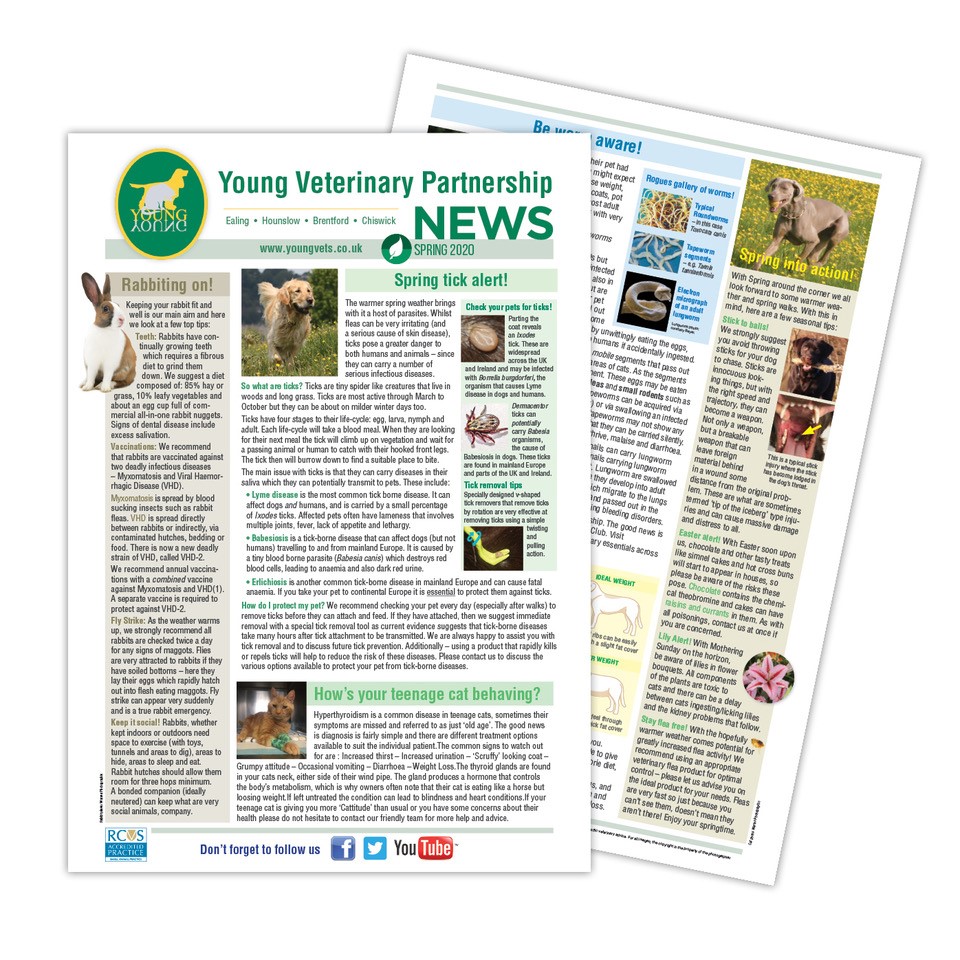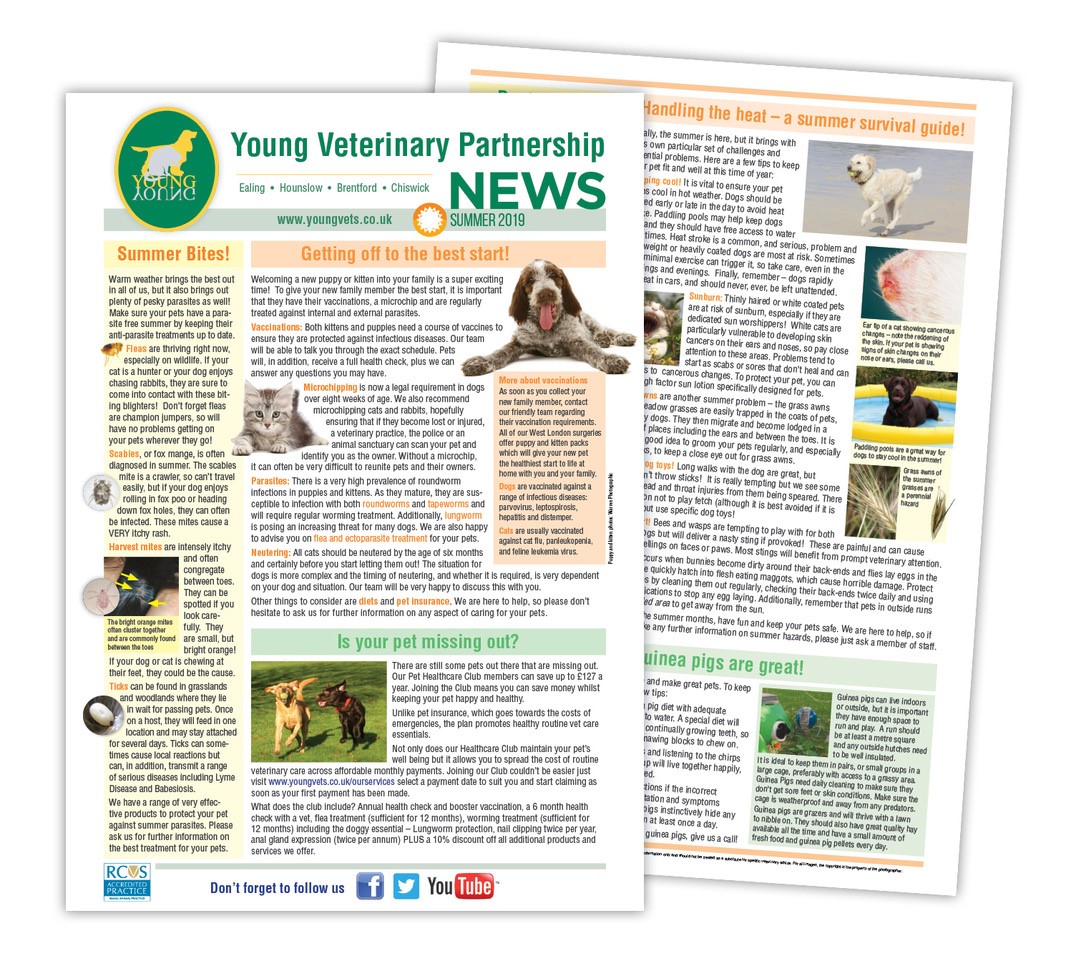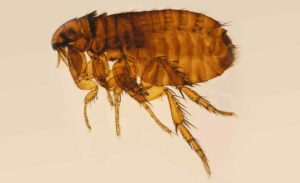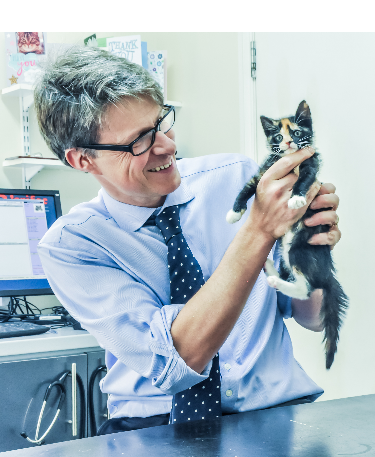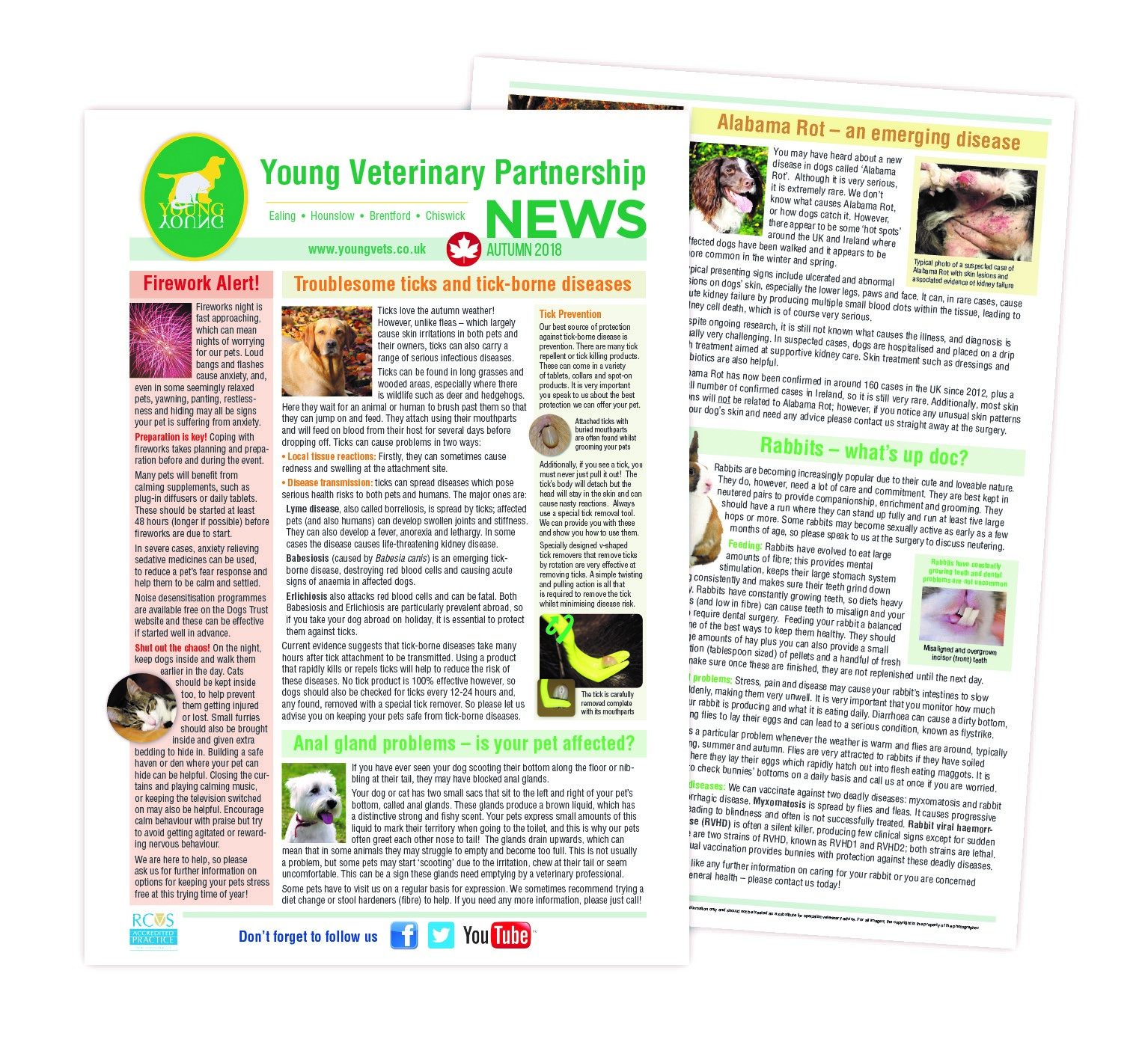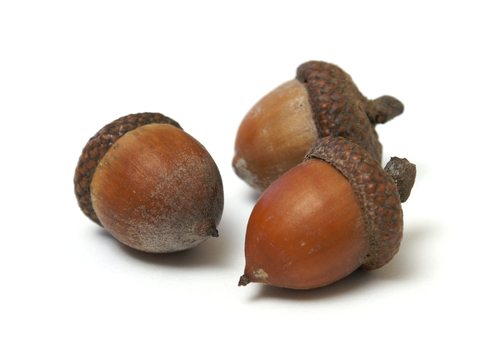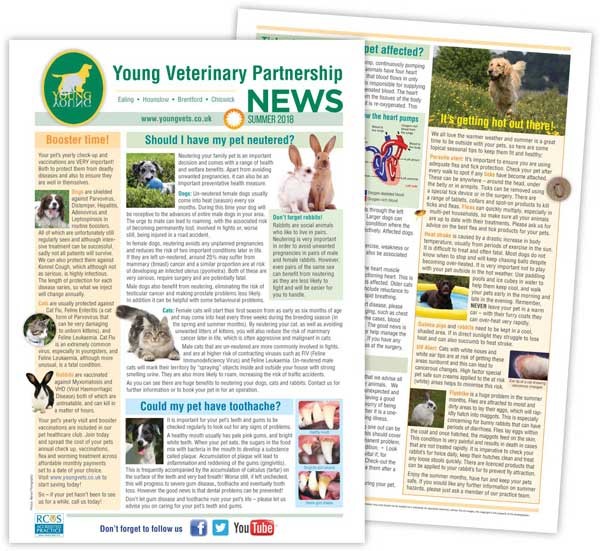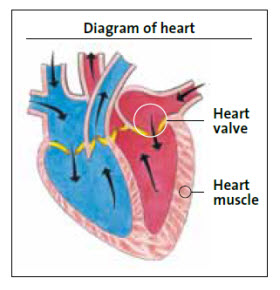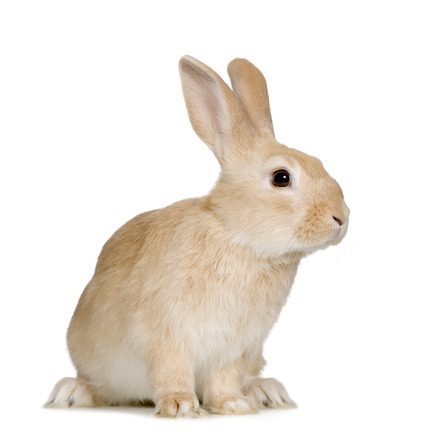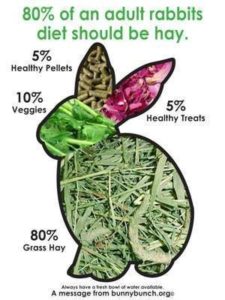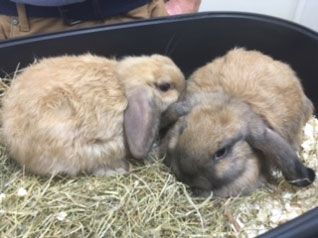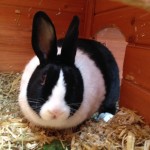Stay Flea Free This Spring!
With Spring on its way and hopefully some warmer weather, the potential for parasite infection is greatly increased on your pet and in your home! Fleas are extremely fast so just because you can’t see them, it doesn’t mean they aren’t there. Our Spring News gives some great seasonal tips on the pet parasites that are out and about and ready to hitch a ride on your pet.
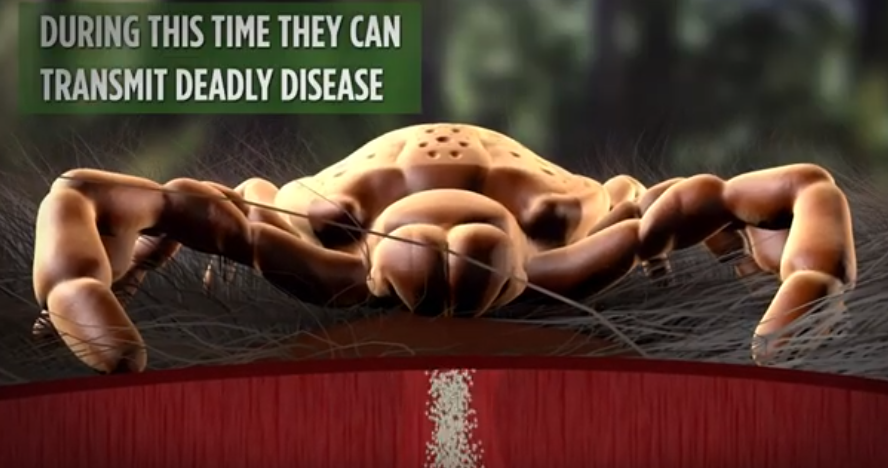
Condition scoring your pet.
If your pet is looking a little broad in the beam, we can help you. Our Spring News gives some top tips on how to body score your pet from home. We understand it can be a real challenge helping your pets to lose weight. Our newsletter provides you with some top diet advice for your pet, plus don’t forget all four of our West London surgeries offer free weight checks and diet advice for your pet.
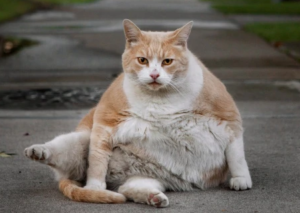
Easter Alert!
With Easter and Mothering Sunday on the horizon this can bring a whole host of new pet poisons into your home, from chocolate to lilies. Our Spring News discusses the seasonal poisons that could be lurking and what to do if you suspect your pet has ingested them.
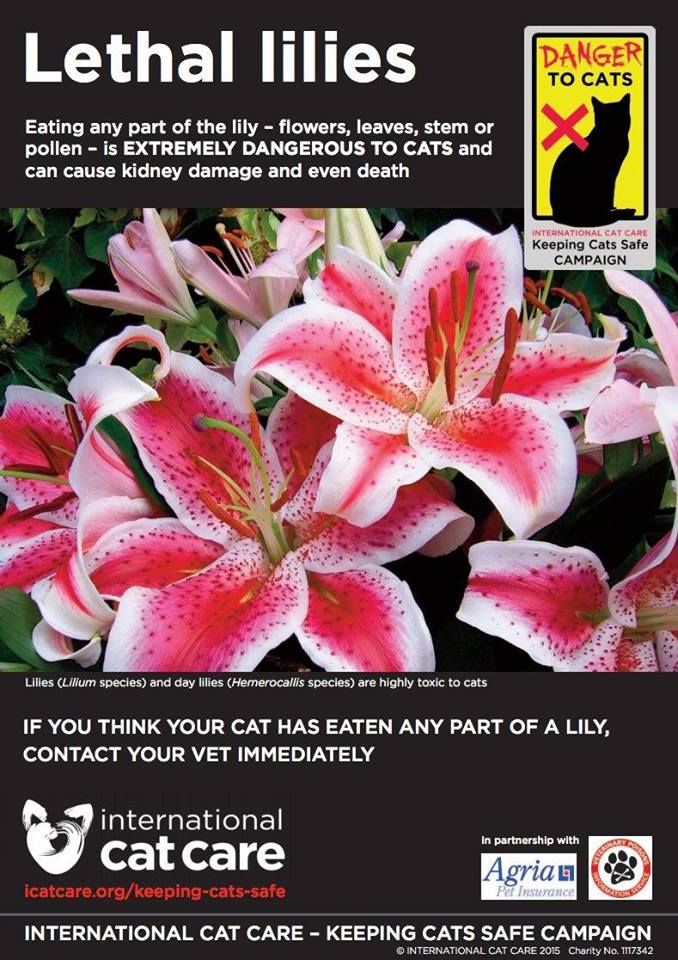
We hope that you enjoy reading our Spring 2020 News, if you have any queries or concerns please do not hesitate to contact our friendly team for more advice.
We are passionate about pets, and have been providing a caring service to our clients and their pets from across West London for over 50 years. We believe that preventative healthcare is very important and offer a Pet Healthcare Club to help support this. Many diseases can be prevented or treated more effectively with earlier interventions. Annual health check-ups are an essential part of our healthcare plan, why not take a look at our Pet healthcare club here and see how we can help your pet.

